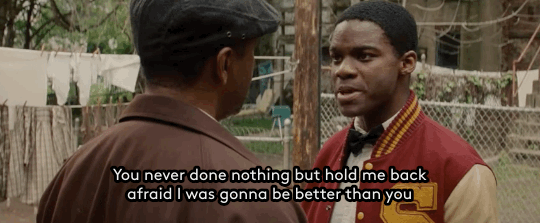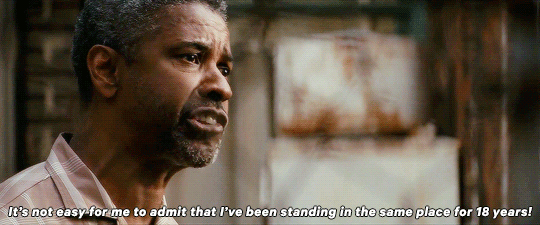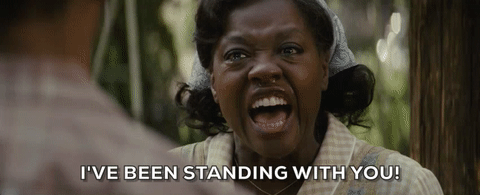Nick Bolton recently wrote in Vanity Fair about the death of traditional Hollywood. As Netflix, Amazon Prime and the market of digital streaming dramatically reshapes the landscape of the entertainment industry, the almost ritualistic practice of going to the cinema and sitting down in the dark to watch a film with a hundred or so strangers faces an ever-growing sense of becoming obsolete. Why go to the cinema and fork out all that money for your tickets and your drinks and your snacks and the parking? It’s inconvenient, and rarely does the cinema offer much sense of an occasion to justify the excursion. But amidst these uncertain times, the theatre remains a steadfast bastion of the traditional arts. People still go to the theatre in droves. People get all dressed up, go out for dinner beforehand, and discuss the production avidly after. A night at the theatre is always a night remembered. In adapting the late August Wilson’s 1983 Pulitzer Prize-winning Fences from stage to screen, director Denzel Washington proves there is still a sense of occasion to be had from the cinema yet.

In the mid-1950s in Pittsburgh, Pennsylvania, Troy Maxson (Washington) lives a life of hard graft and small comforts. Whilst his almost-two-decade marriage to Rose (Viola Davis) remains a largely happy one, his relationship with his son Cory (Jovan Adepo) has only ever been turbulent, and the weight on his shoulders is only further laden by an estranged son from a previous relationship (Russell Hornsby), and his severely mentally-impaired brother (Mykelti Williamson). When Cory is scouted by a college football team, Troy is caught between his own fears leftover from past rejection as a sportsman, his devout belief in a man’s sense of responsibility, and jealousy at the son’s potential to outshine the father.

Even to complete strangers of Wilson’s play, a mere ten minutes is all it takes for the film to convey its deep roots in the stage. Almost entirely taking place within the boundaries of the Maxson’s suburban property, Fences is a family drama that both fits tightly within Troy’s restrictive worldview and radiates out of the big screen as an immensely engrossing slice-of-life exploration into black communities of that time. Everything from the arrangement of the actors on-set to the limited background music to the lighting captures that feeling of not just watching everything unfold via countless pixels, but as if the screen has been physically reshaped into a three-dimensional space where its big-name talent is within touching distance. Even scenes in the street outside the Maxson residence, whilst the road itself clearly stretches off into the distance, feel like background pieces of the set, like incredibly detailed landscape paintings. The fact that despite all this, things never feel claustrophobic, monotonous or in the vein of a cheap ‘bottleneck episode’ set-up, further cements the film’s intuitive understanding of raw, engaging drama that knows how to connect with the audience.

Indeed, rawness is the word here, as a simple Tennessee Williams-esque premise such as this ultimately lives or dies on the calibre of the actors in the spotlight. Denzel Washington and Viola Davis are undeniably such actors, and both rise to the occasion to deliver utterly exquisite performances. Playing off each other with chemistry reminiscent of such classic pairings as Elizabeth Taylor and Richard Burton in Who’s Afraid of Virginia Woolf?, every layer of who Troy and Rose are is slowly peeled back, and the currents of emotion underneath it all are laid bare. Washington’s performance alone is more than enough to steal the experience single-handed, pulling off every detail of Troy’s rough-edged, world-weary, heartfelt yet equally heartless existence. But Davis is nothing less than a one-woman powerhouse, a true showstopper and artist whose Rose is deserving of not only the highest acclaim and accolades, but of the history books.

Washington at the helm of Fences delivers a cinematic work that is the definition of a labour of love, its every ingredient a clearly considered honouring of the late August Wilson’s keen human interest and insight. It’s a story of suburban blackness, and a dissecting story at that, but as Washington himself insisted during a February 8th discussion at London’s National Theatre, “it’s what you bring to it”. As closely confined as the borders and fences of the Maxson’s world may be, it’s a world that can speak to every visitor.
Quality: 5/5
Entertainment: 4/5
Final Score: 4.5/5